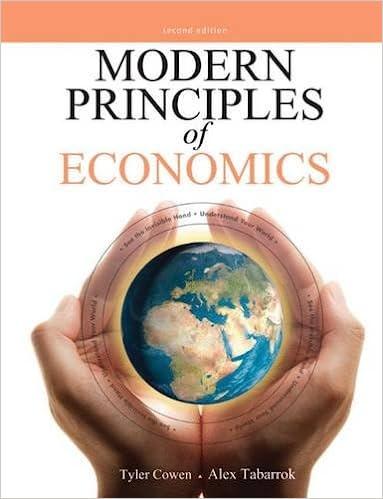Heres another specialization and exchange problem. This problem is wholly made-up, so that you wont be able
Question:
Here’s another specialization and exchange problem. This problem is wholly made-up, so that you won’t be able to use your intuition about the names of countries or the products to figure out the answer.
a. Consider the productivity table below:
Which country has an absolute advantage at making rotids? At making taurons? pg75
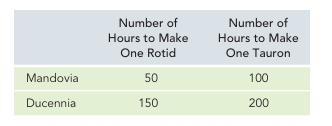
b. Using the information in the productivity table above, estimate the opportunity cost of making rotids and taurons in Mandovia and Ducennia.
Which country has a comparative advantage at manufacturing rotids? At making taurons?
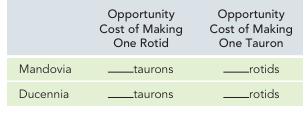
c. There are 1 billion hours of labor available for making products in Mandovia, and 2 billion hours of labor available for making products in Ducennia. In a no-trade world, let’s assume that half the labor in each country gets used to make each product. (In a semester-long international trade course, you’d build a bigger model that would determine just how the workers are divided up according to the forces of supply and demand.) Fill in the table.
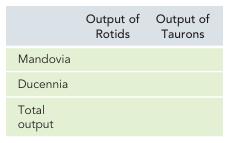
d. Now, allow specialization. If each country completely specializes in the product in which it holds the comparative advantage, what will the total output of rotids be? Of taurons? Is total output of each product higher than before?
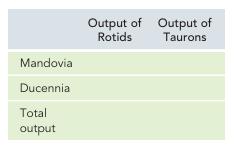
e. Finally, let’s open up trade. Trade has to make both sides better off (or at least no worse off ), and in this problem as in most negotiations, there’s more than one price that can do so ( just think about haggling over the price of a car or a house). Let’s pick out a case that makes one side better off, and leaves the other side just as well off as in a no-trade world. The price both sides agree to is three rotids for two taurons. Ship 5 million taurons in one direction, and 7.5 million rotids in the other direction (you’ll have to figure out on your own which way the trade flows). In the table below, calculate the amount that each country gets to consume. Which country is better off under this set of prices? Which one is exactly as well off as before?
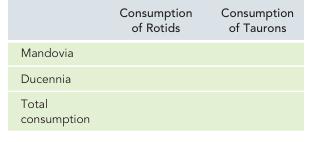
f. This time, the trade negotiations turn out differently: It’s two rotids for one tauron.
Have the correct country ship 10 million rotids, have the other send 5 million taurons, and fill out the table below. One way to make sure you haven’t made a mistake is to make sure that “total consumption” is equal to “total output” from part d: We can’t create rotids and taurons out of thin air! Are both countries better off than if there were no trade? Which country likes this trade deal better than the deal from part e?
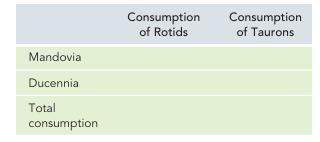
Step by Step Answer:




